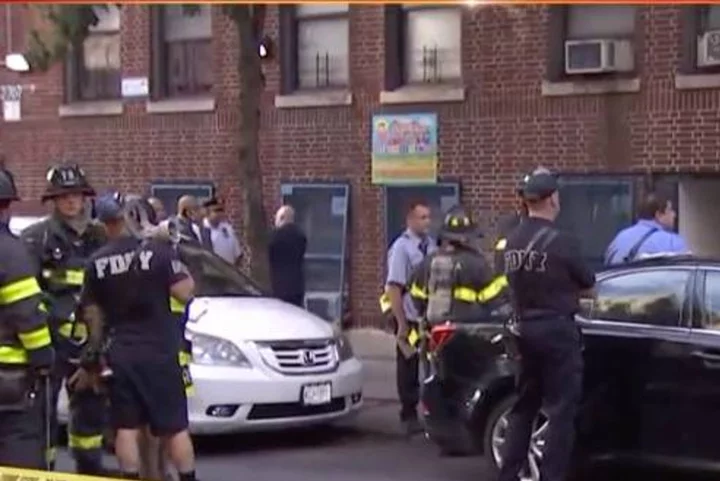
Daycare owner and neighbour charged after one-year-old child died from suspected fentanyl exposure
The owner of the daycare centre in the Bronx where a one-year-old boy died and other children fell ill from suspected fentanyl exposure have been charged with murder. Divino Nino owner Grei Mendez De Ventura, 36, and his neighbour Carlisto Acevedo Brito, 41, were arrested on Saturday night. They are each facing 11 charges, including child endangerment and criminal possession of a controlled substance, according to The New York Post. Daycare staff called 911 after finding children unresponsive after their nap on Friday. A two-year-old boy is in critical condition, while another two-year-old boy and an eight-month-old girl are both in stable condition. The one-year-old boy was pronounced dead at the scene. A fourth child, another two-year-old boy, who was picked up from the daycare earlier in the day on Friday also appeared to have been exposed to drugs. He was taken to a hospital and is in stable condition, police said. All four children seemed to have been exposed to an opioid, officials said, according to the New York Times. These suspicions, police said, arose after assessing the hospitalised children’s symptoms in combination with the discovery of a “kilo press” found at the daycare centre. “This is an item that is commonly used by drug dealers when packaging large quantities of drugs,” police explained. Last Friday concluded the one-year-old’s first week at the daycare, according to the child’s father Otoniel Feliz. Mr Feliz told the Post that he initially thought his son was sick from carbon monoxide poisoning. “It was a peaceful place, it seemed like they would take good care [of the kids]. They always keep in contact with us. Everything seemed fine,” he said. “We expected that we were taking our son to a place where he would be taken care of, not to the funeral home,” Mr Feliz said. Read More Prescription opioid shipments declined sharply even as fatal overdoses increased, new data shows One-year-old child dead and three others hospitalised after daycare incident No charges against Maine authorities for death of handcuffed man who was hit in head with flashlight
2023-09-18 01:27

Sudan conflict: Landmark skyscraper in Khartoum engulfed in flames
Dark smoke rises from the cone-shaped tower as several government buildings come under attack.
2023-09-17 23:54
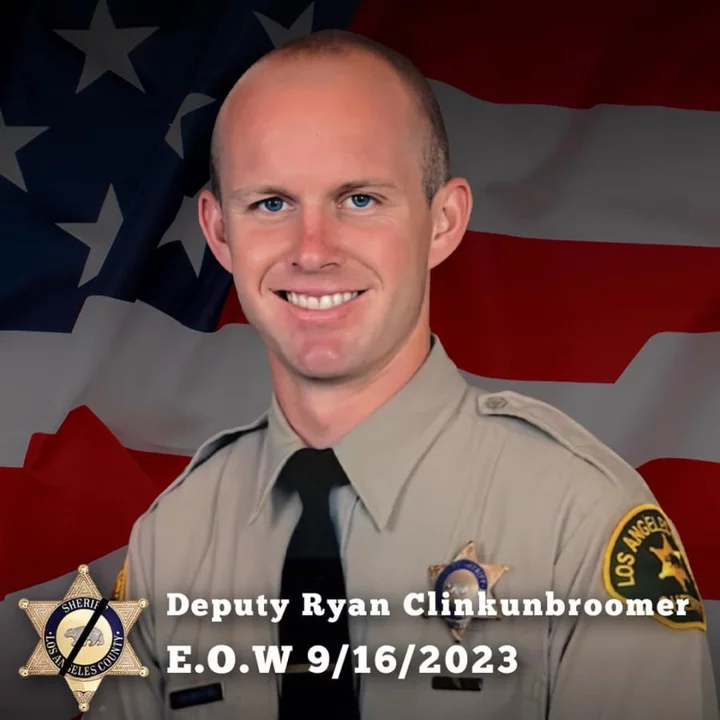
LA sheriff’s deputy shot dead inside patrol car in targeted ‘ambush’ days after marriage proposal
A Los Angeles County Sheriff’s Department deputy was shot and killed in his patrol while on duty in what officials described as a “targeted” attack. Ryan Clinkunbroomer, 30, was found shot on Saturday evening after a “good samaritan” reported an officer “unconscious” inside his vehicle outside the Palmdale sheriff’s station, Sheriff Robert Luna said during a news conference. The deputy was then transported to a local hospital and was treated for a gunshot wound but did not survive. The suspect has not been caught, the sheriff said. “He ambushed and killed — murdered — one of our deputies,” Mr Luna said, describing the suspect as a “public safety threat.” Sheriff Luna said although the investigation is in the early stages, the shooting is believed to be a “targeted act.” He speculated, “It could have been just the fact that he was representing the Los Angeles County Sheriff’s Department as one of our employees. We don’t know.” “He was just driving down the street and for no apparent reason — and we’re still looking into the specific reasons – somebody decided to shoot and murder him. I’m assuming at this point, because he was in uniform. “Our deputy was a devoted family member and a cherished community member. He was cowardly shot while working tirelessly to serve our community this evening.” Mr Luna added that Clinkunbroomer had gotten engaged just four days before the incident. “He was just starting his life,” the sheriff said. The sheriff also released a statement on Facebook, writing that the “eight-year veteran of the LASD” was “senselessly murdered tonight.” “From everything I know about Ryan, people absolutely loved and adored him. He wasn’t just one of our Deputy Sheriffs. He was a third generation deputy. His father and grandfather served with us,” the statement read. “Service was running through his veins. He embodied the values of bravery, selflessness and was committed to justice. Our deputy was a devoted family member and a cherished community member. He was cowardly shot while working tirelessly to serve our community this evening,” the sheriff added. Read More Man charged with attempted murder after boy, 14, stabbed in chest Mother who killed three young children before attempting to end her life is indicted on murder charges Alex Murdaugh trial latest: Prosecution finds ‘significant disputes’ in convicted murderer’s jury tampering claims
2023-09-17 22:29
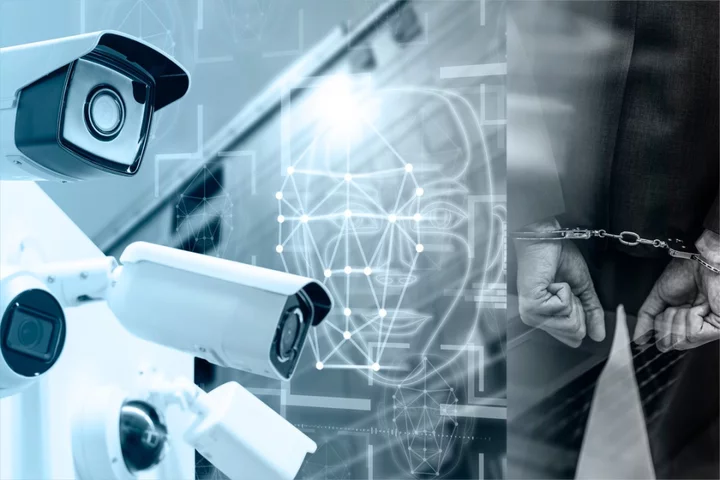
Wrongly arrested because of facial recognition: Why new police tech risks serious miscarriages of justice
On 16 February, Porcha Woodruff was helping her children get ready for school when six Detroit police officers arrived at her door. They told her she was under arrest for a January carjacking and robbery. She was so shocked she wondered for a moment if she was being pranked. She was eight months into a difficult pregnancy and partway through a nursing school programme. She did little else besides study and take care of her kids. She certainly wasn’t out stealing cars at gunpoint, she said. “I’m like, ‘What,?’ I opened my door so he could see my stomach. ‘I’m eight months pregnant. You can see two vehicles in the driveway. Why would I carjack?’” she told The Independent. “‘You’ve gotta be wrong. You can’t have the right person.’” Her children cried as she asked officers if the suspect was pregnant and insisted they had mistakenly arrested her. She was put in handcuffs and taken to jail, where she had panic attacks and early contractions. She later learned police identified her as a suspect after running security footage through the department’s facial recognition software, relying on a 2015 mugshot from a past traffic arrest into a photo lineup where the carjacking victim singled out Ms Woodruff as her assailant. The Detroit Police Department eventually dropped the case, but the arrest has deeply shaken Ms Woodruff. “What happened to the questioning? What happened to me speaking to someone?” she said. “What happened to any of the initial steps that I thought were available to a person who was accused of doing something?” The case underscores the growing risks of civil rights violations as police departments and law enforcement agencies across the country increasingly adopt facial-recognition and other mass surveillance technologies, often used as an unreliable shortcut around methodical human police work. Criminal justice advocates and the people targeted by this burgeoning police tech argue these programmes are riddled with the same biases and opaque or nonexistent oversight measures plaguing policing at large. The early results, at least, haven’t been encouraging. At least six people around the US have been falsely arrested using facial ID technology. All of them are Black. These misfires haven’t stopped the technology from proliferating across the country. At least half of federal law enforcement agencies with officers and a quarter of state and local agencies are using it. “We have no idea how often facial recognition is getting it wrong,” Albert Fox Cahn, executive director of the Surveillance Technology Oversight Project (STOP), told The Independent. “When you have facial recognition being used thousands of times, without any accountability for mistakes, it’s inviting injustice,” he added. Nowhere has that injustice been more pronounced than Detroit, a city where Black people have long experienced documented over-policing from law enforcement. Three of the six people mistakenly arrested by facial recognition technology have been in the Motor City, according to the ACLU. This status quo is why Ms Woodruff is suing DPD, claiming among other things that the agency has engaged in “a pattern of racial discrimination” against her and other Black residents “by using facial recognition technology practices proven to misidentify Black citizens at a higher rate than others in violation of the equal protection guaranteed by” the Michigan civil rights statutes. “I definitely believe that situation would’ve gone differently had it been another race, honestly, just my opinion. There was no remorse shown to me and I was pregnant. I pleaded,” she told The Independent. “Being mistaken for something as serious as that crime – carjacking and armed robbery – that could’ve put me in a whole different type of lifestyle,” she added. “I was in school for nursing. Felons cannot become nurses. I could’ve ended up in jail. That could have altered my life tremendously.” The Independent has requested comment from DPD. After Ms Woodruff filed her suit, Detroit police chief James White said in a press conference in August “poor investigative work” led to the false arrest, not facial recognition technology. He claimed that department software gave detectives numerous possible suspects and was only meant to be a “launch” point for further investigation. “What this is, is very, very poor investigative work that led to a number of inappropriate decisions being made along the lines of the investigation, and that’s something this team is committed to not only correcting, having accountability, having transparency with this community, and in building policy immediately to ensure regardless of the tool being used, this never happens,” Mr White said. He added that officers won’t be allowed to use images sourced by facial recognition in lineups, and warrants based on facial ID matches must be reviewed by two captains before being carried out. ‘The lead and the conclusion’ Some aren’t convinced these changes will prevent the excesses of what they see as a fundamentally flawed technology. “The technology is flawed. It’s inaccurate,” Philip Mayor, senior staff attorney at the ACLU of Michigan, told The Independent. “Police repeatedly assured us that it’s being used only as an investigative lead, but what we see here in Detroit time and time again is it is both being used as the lead and the conclusion.” Studies suggest that facial-recognition algorithms, which have been used to capture suspects in high-profile cases like those connected to January 6, also fail to accurately identify Black people and women, driving up inequalities in arrests, because image-training datasets often lack full diversity. However, according to Mr Mayor, police departments make things even worse by failing to do basic training and common-sense investigative work on top of facial recognition tools. He represents Robert Williams, a Detroit man who was mistakenly arrested for a 2020 theft from a high-end Detroit boutique. A security contractor employed by the store worked with the city and state police and flagged Mr Williams’ name using facial recognition tools. How police came to trust that Williams was the right man reveals the sloppiness of how facial ID tech is used in practice, according to the ACLU attorney. After the theft, police searched a database containing both past photos of Mr Williams and his present-day driver’s license. ‘It picks out 486 people who are the most likely perpetrators; not a single one of them is his current driver’s license, even though his current driver’s license is in the database that was searched,’’ Mr Mayor said. “That seems like an obvious exculpatory fact, the kind of thing that would lead you to say if you were actually thinking, this isn’t the right guy.” When these dubious matches are then used to build a line-up, questionable police work attains the gloss of near-fact, and witnesses choose from a group of people who may have no credible tie to a crime that took place but still look something like the person who did. “This is not me,” Mr Williams told police during his investigation, according to The New York Times. “You think all Black men look alike?” The father of two, after asking a local police voluntarily stop using facial recognition technology, sued the DPD in 2021. “This technology is dangerous when it doesn’t work, which is what the cases in Detroit are about. It’s even more dangerous when it does work. It can be used to systematically surveillance when we come and go from every one of the places that are important in our private lives,” the ACLU attorney said. “I don’t think there’s any reason to believe that departments elsewhere right now are not making the same mistakes.” ‘A force multiplier for police racism’ Detroit isn’t the only place grappling with the impacts – and errors – of this technology. In Louisiana, the use of facial recognition technology led to a wrongful arrest of a Georgia man for a string of purse thefts. A man in Baltimore spent nine days in jail after police incorrectly identified him as a match to a suspect who assaulted a bus driver. The Baltimore Police Department ran nearly 800 facial recognition searches last year. Those cases and others have added to a growing list of misidentified suspects in a new era of racial profiling dragnets fuelled by tech that is rapidly outpacing police and lawmakers’ ability to fix it. Facial recognition software often is “a force multiplier for police racism,” worsening racial disparities and amplifying existing biases, according to Mr Cahn. It can spur a vicious cycle. Black and brown people are already arrested at disproportionate rates. These arrests mean they are more likely to enter a database of faces being analyzed and used for police investigations. Then, error-prone facial recognition technology is used to comb these databases, often failing to identify or distinguish between Black and brown people, particularly Black women. “So the algorithms are biased, but that’s just the start, not the end of the injustice,” Mr Cahn says. Such technologies, advocates warn, are embedded in wider mass surveillance programmes that often lack robust public oversight. In New York City, law enforcement agencies relied on facial recognition technology in at least 22,000 cases between 2016 and 2019, according to Amnesty International. New York City’s Police Department spent nearly $3bn growing its surveillance operations and adding new technology between 2007 and 2019, including roughly $400m for the Domain Awareness System, built in partnership with Microsoft to collect footage from tens of thousands of cameras throughout the city, according to an analysis from STOP and the Legal Aid Society. The NYPD has failed to comply with public disclosure requirements about what those contracts – from facial recognition software to drones and license plate readers – actually include, according to the report. Until 2020, that money was listed under “special expenses” in the police budget until passage of the Public Oversight of Surveillance Technology Act. The following year, more than $277m in budget items were listed under that special expenses programme, the report found. “We’ve seen just concerted pushback from police departments against the sort of oversight that every other type of government agency has because they don’t want to be held accountable,” according to Mr Cahn. “If we treated surveillance technology vendors the way we treated other technology vendors, it would be like Theranos – police would be arresting some of these vendors for fraud rather than giving them government contracts,” he added. “But there is no accountability.” On 7 August, 2020, New York City Police Department officers in riot gear launched a six-hour siege outside Derrick Ingram’s Hell’s Kitchen apartment. Mr Ingram – a racial justice organiser who is embroiled in a federal lawsuit against the NYPD – was surrounded by more than 50 officers after he allegedly shouted into an officer’s ear at a protest earlier that summer. Police insisted they had a warrant on assault charges, but couldn’t produce one when Mr Ingram asked them to, according to his suit. The whole encounter, in which the NYPD deployed snipers, drones, helicopters, and police dogs, began with facial recognition technology. “To say that I was terrified is an understatement – I was traumatized, I still am,” Mr Ingram later testified. “I fear deep down in my core that if I opened my door to those officers, my life would be swiftly taken.” To identify Mr Ingram as a potential suspect, NYPD relied on facial recognition software “as a limited investigative tool, comparing a still image from a surveillance video to a pool of lawfully possessed arrest photos,” according to a police statement, adding that “no one has ever been arrested solely on the basis of a computer match.” The software pulls from a massive internal database of mugshots to generate possible matches, according to the department. Civil rights groups and lawmakers criticized the department’s use of facial recognition – initially hailed as a tool to crack down on violence offenders – for being deployed to suppress dissent, and triggering a potentially lethal police encounter at Mr Ingram’s home. As for Ms Woodruff in Detroit, she hopes her experience can show the dangers of relying too heavily on facial recognition technology. “It may be a good tool to use, but you have to do the investigative part of using that, too,” she said. “It’s just like everything else. You have your pieces that you put together to complete a puzzle.” Her life would’ve been a whole lot different, she said, if “someone would’ve just taken the time to say, ‘OK, stop, we’re going to check this out, let me make a phone call.’” Read More Detroit police changing facial-recognition policy after pregnant woman says she was wrongly charged White House science adviser calls for more safeguards against artificial intelligence risks How a Drake concert put NYPD’s ‘arsenal’ of surveillance technologies under the spotlight
2023-09-17 22:18
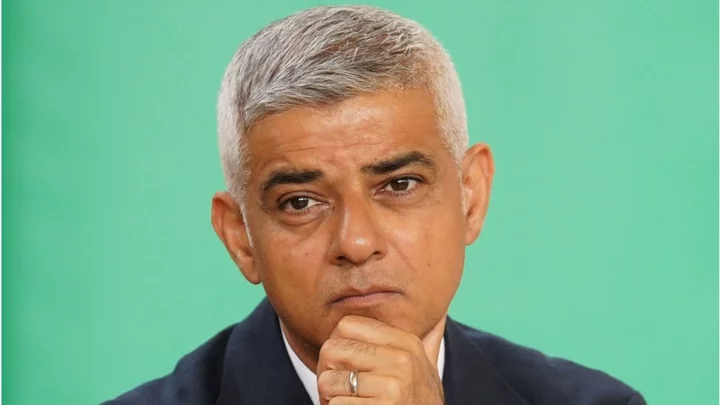
Sadiq Khan flies to New York for global climate summit
The Mayor of London is expected to speak at the United Nations climate ambition summit on Wednesday.
2023-09-17 16:27
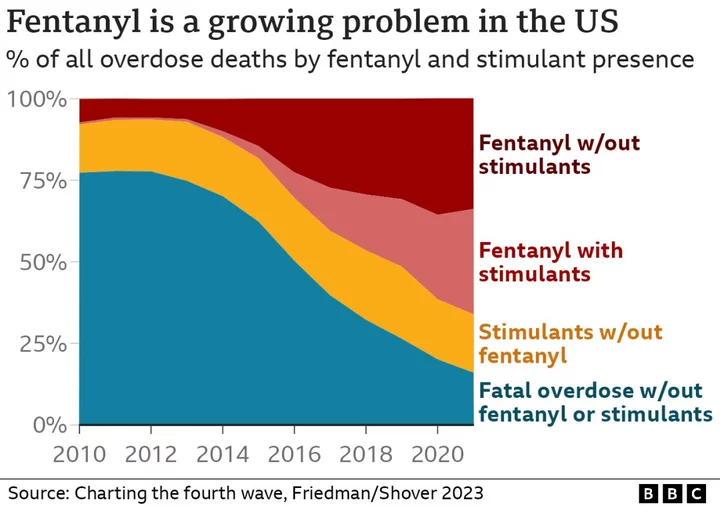
How the fentanyl crisis' fourth wave has hit every corner of the US
The epidemic's staggering scale and its infiltration of communities across the nation is laid bare in a new study.
2023-09-17 07:20

Colorado peak named after former governor linked to a massacre of Indigenous people has been renamed Mount Blue Sky
On one cold November morning in 1864, more than 200 Cheyenne and Arapaho tribal members, mostly women and children, were murdered in one of the worst massacres in American history.
2023-09-17 06:45
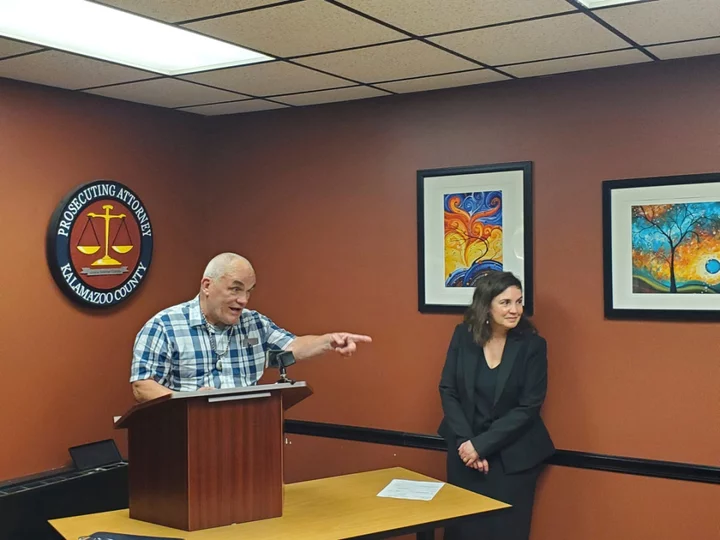
Michigan to pay $1m to man wrongfully convicted of killing two hunters
The state of Michigan has agreed to pay $1.03 million to a man who spent nearly 21 years in prison for the deaths of two hunters before the convictions were thrown out in February. Jeff Titus, 71, qualified for compensation under the state's wrongful conviction law, which pays $50,000 for every year behind bars. Records show Court of Claims Judge James Redford signed off on the deal on Aug. 23. “Our goal is to hold accountable those who are responsible for the harm done to Mr. Titus. The state's acknowledgment of his wrongful conviction is a start,” attorney Wolfgang Mueller said Friday. Titus had long declared his innocence in the fatal shootings of Doug Estes and Jim Bennett near his Kalamazoo County land in 1990. He was released from a life sentence earlier this year when authorities acknowledged that Titus’ trial lawyer in 2002 was never given a police file with details about another suspect. Thomas Dillon was an Ohio serial killer whose five victims between 1989 and 1992 were hunting, fishing or jogging. There is no dispute that the failure to produce the file violated Titus’ constitutional rights. In June, Kalamazoo County prosecutor Jeff Getting said Titus would not face another trial. “I don’t know who ultimately murdered Mr. Estes and Mr. Bennett,” said Getting, who wasn't involved in the 2002 trial. There was no physical evidence against Titus, who was portrayed at trial as a hothead who didn’t like trespassers. The Innocence Clinic at University of Michigan law school worked to exonerate him. Dillon died in prison in 2011. ___ Follow Ed White at http://twitter.com/edwritez
2023-09-16 22:49
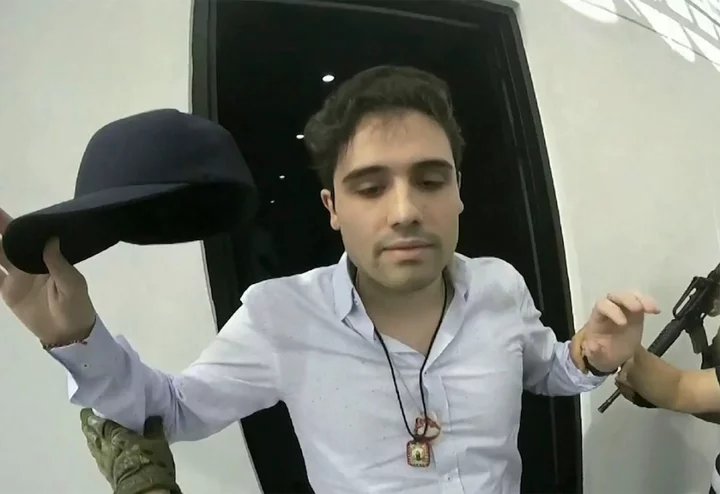
Mexico extradites son of ‘El Chapo’ Ovidio Guzmán López to US
Mexico extradited Ovidio Guzmán López, a son of former Sinaloa cartel leader Joaquin “El Chapo” Guzmán, to the United States on Friday to face drug trafficking charges, US attorney general Merrick Garland said in a statement. “This action is the most recent step in the Justice Department’s effort to attack every aspect of the cartel’s operations,” Mr Garland said. The Mexican government did not immediately respond to requests for comment. Mexican security forces captured Mr Guzmán López, alias “the Mouse,” in January in Culiacan, capital of Sinaloa state, the cartel’s namesake. Three years earlier, the government had tried to capture him, but aborted the operation after his cartel allies set off a wave of violence in Culiacan. January’s arrest set off similar violence that killed 30 people in Culiacan, including 10 military personnel. The army used Black Hawk helicopter gunships against the cartel’s truck-mounted .50-caliber machine guns. Cartel gunmen hit two military aircraft forcing them to land and sent gunmen to the city’s airport where military and civilian aircraft were hit by gunfire. The capture came just days before US president Joe Biden visited Mexico for bilateral talks followed by the North American Leaders’ Summit. On Friday, Mr Garland recognized the law enforcement and military members who had given their lives in the US and Mexico. "The Justice Department will continue to hold accountable those responsible for fueling the opioid epidemic that has devastated too many communities across the country.” In April, US prosecutors unsealed sprawling indictments against Mr Guzmán and his brothers, known collectively as the “Chapitos.” They laid out in detail how following their father’s extradition and eventual life sentence in the US, the brothers steered the cartel increasingly into synthetic drugs like methamphetamine and the powerful synthetic opioid fentanyl. The indictment unsealed in Manhattan said their goal was to produce huge quantities of fentanyl and sell it at the lowest price. Fentanyl is so cheap to make that the cartel reaps immense profits even wholesaling the drug at 50 cents per pill, prosecutors said. The brothers denied the allegations in a letter. The Chapitos became known for grotesque violence that appeared to surpass any notions of restraint shown by earlier generations of cartel leaders. Fentanyl has become a top priority in the bilateral security relationship. But Mexican president Andrés Manuel López Obrador has denied assertions by the US government and his own military about fentanyl production in Mexico, instead describing the country as a transit point for precursors coming from China and bound for the US. López Obrador blames a deterioration of family values in the US for the high levels of drug addiction in that country. An estimated 109,680 overdose deaths occurred last year in the United States, according to numbers from the Centers for Disease Control and Prevention. About 75,000 of those were linked to fentanyl and other synthetic opioids. Inexpensive fentanyl is increasingly cut into other drugs, often without the buyers’ knowledge. Read More El Chapo’s son, three Sinaloa cartel leaders and two Mexican firms sanctioned for bringing fentanyl into US Case details Sinaloa cartel's fentanyl-fueled evolution Mexican capo's arrest a gesture to US, not signal of change Big week for US-Mexico ties going into North American summit Drug lord, trafficker, killer of wedding singers: How the ‘New Mouse’ followed in the bloody footsteps of his father El Chapo
2023-09-16 12:52
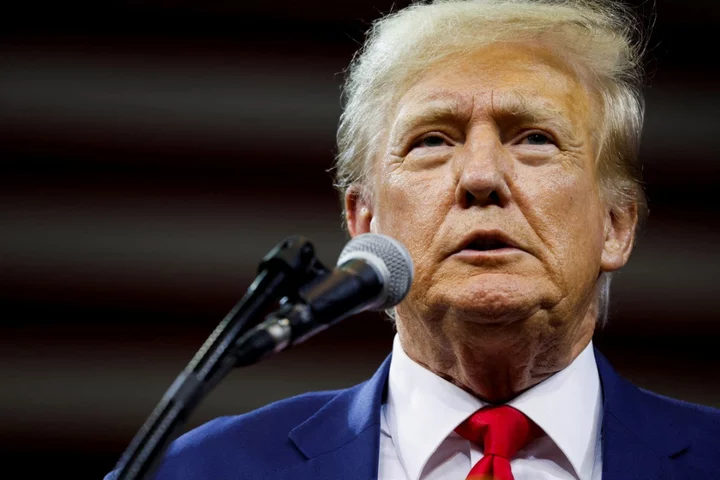
Prosecutors ask judge to restrict Trump’s ‘inflammatory’ attacks surrounding election subversion case
Federal prosecutors are asking the judge overseeing a case targeting Donald Trump’s alleged efforts to subvert the outcome of the 2020 presidential election to help stop his wave of “inflammatory” attacks. Following a grand jury’s indictment in the case, the former president has “repeatedly and widely disseminated public statements” attacking Washington DC residents as well as members of the court, prosecutors and prospective witnesses, according to a filing in US District Court on 15 September. His statements threaten “to undermine the integrity of these proceedings and prejudice the jury pool,” prosecutors warned. Prosecutors with US Department of Justice special counsel Jack Smith have asked US District Court Judge Tanya Chutkan to take “immediate” steps to ensure a fair trial and an impartial jury, including drafting a “narrowly tailored order” that restricts “certain prejudicial extrajudicial statements” from Mr Trump. An unsparing assessment of Mr Trump’s remarks charts the former president’s ongoing and baseless narrative casting doubt on the integrity and veracity of US elections, his remarks targeting his perceived political opponents, including family members of the judges and prosecutors overseeing the criminal cases against him, and how his bullhorn dog-whistle statements are heard among his supporters who elevate those threats. “The defendant has an established practice of issuing inflammatory public statements targeted at individuals or institutions that present an obstacle or challenge to him,” including bogus statements surrounding US elections that have “engendered widespread mistrust in the administration of the election, and the individuals whom he targeted were subject to threats and harassment,” according to prosecutors. Mr Trump knows that “when he publicly attacks individuals and institutions, he inspires others to perpetrate threats and harassment against his targets,” according to the filing, and that he continues those attacks “precisely because he knows that in doing so, he is able to roil the public and marshal and prompt his supporters.” The filing includes several posts from Mr Trump’s Truth Social account, which the former president has used as a bully pulpit to his supporters to direct the narratives surrounding the criminal cases against him while casting himself as a victim of political prosecution. Mr Trump has “posted publicly about individuals whom he has reason to believe will be witnesses in this trial,” and his “relentless public posts marshaling anger and mistrust in the justice system, the Court, and prosecutors have already influenced the public,” according to prosecutors. The special counsel’s office has also faced “multiple threats,” according to the filing. In a separate filing on Friday, prosecutors have warned a judge that people connected to the case have faced “threats and harassment” fuelled by the former president’s “inflammatory public statements.” Judge Chutkan has allowed prosecutors to seal those names, according to the nine-page order on 15 September. Prosecutors asked to court to withhold the names and other identifying information of “certain individuals” targeted by Mr Trump with “inflammatory” statements, as well as excerpts from witness interview transcripts that describe the alleged threats and harassment they received, according to the filing. “The government seeks to establish that Defendant has publicly criticized his perceived adversaries and is aware that this criticism has led to their harassment,” the judge wrote. This is a developing story Read More Trump’s Twitter DMs handed over as special counsel asks for narrow gag order in Jan 6 case – latest
2023-09-16 05:47
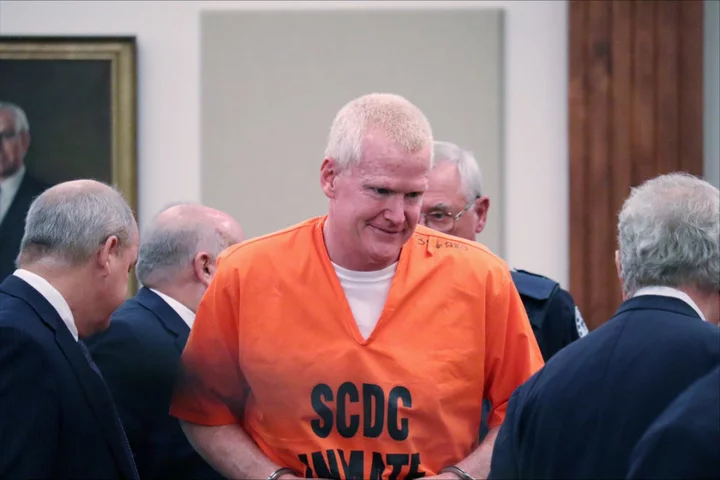
Alex Murdaugh’s jury tampering allegations have ‘significant’ factual disputes, prosecutors say
Prosecutors have responded to Alex Murdaugh’s allegations of jury tampering at his double murder trial stating that South Carolina investigators have found “significant factual disputes” with the claims. The South Carolina Attorney General’s Office filed the response on Friday moving to dismiss Murdaugh’s request for a new trial due to “procedural defect”. The filing, which came just under deadline on Friday afternoon, is the state’s first response to the allegations made in the defence’s bombshell motion last week. Murdaugh demanded a new trial after his legal team accused Colleton County Clerk of Court Rebecca Hill of pressuring jurors to return a guilty verdict. Prosecutors also said that they want Murdaugh’s defence team to show that they did not know about the alleged jury tampering during the murder trial. Ms Hill has not commented publicly on the allegations. The response from the state on Friday comes a day after a smiling Murdaugh appeared publicly for the first time since he was sentenced to life in prison for the murders of his wife Maggie and son Paul, this time to face a string of financial fraud charges. At the status hearing in Beaufort County, Judge Clifton Newman set the trial date for 27 November. The case will focus on the millions of dollars he stole from the family of his dead housekeeper Gloria Satterfield, part of the 101 state charges in response to his alleged financial crimes. Two former friends and alleged co-conspirators in the case also appeared in court on Thursday, former Palmetto State Bank CEO Russell Laffitte and former attorney Cory Fleming, the latter sentenced to 10 years in prison. Read More Smiling Alex Murdaugh appears in court in shackles as trial date set in financial fraud case Alex Murdaugh’s demand for new trial over jury tampering claims awaiting response as deadline looms – live
2023-09-16 04:27

Senators press Pentagon on whether Musk used Starlink programme to thwart Ukrainian attack
Three senators who serve on the Committee on Armed Forces have reportedly sent a letter to the Department of Defence (DoD) expressing concern over allegations that Elon Musk controlled Ukrainian soldiers’ ability to access satellite communications via Starlink. Democratic senators Jeanne Shaheen, Elizabeth Warren and Tammy Duckworth have asked Defense Secretary Lloyd Austin to provide clarification over an incident from last year in a letter sent on Friday according to NBC News. The incident, laid out in Walter Isaacson’s biography of Mr Musk, claims that the billionaire tech entrepreneur stopped the Ukrainian armed forces from accessing satellite communications via Starlink near the Crimean Peninsula thus thwarting a potential assault on Russian ships. Mr Musk clarified on X that he did not discontinue Starlink connectivity but refused a request by Ukraine to provide it there out of fear of escalating war. The three senators said the “confusion over what actually happened” demands answers and expressed great concern about Mr Musk’s role in the incident. “The reports raise serious concerns about whether Mr Musk has personally intervened to undermine a key US partner at a critical juncture,” a portion of the reported letter said. Several officials, including the three senators, have shared similar worries that commercial satellite companies similar to Starlink could cause issues by intervening on significant decisions like this one. Senator Jack Reed who serves as the chairman of the Committee on Armed Forces, said in a statement obtained by Bloomberg, that the situation with Mr Musk raised concerns about national security. “Neither Elon Musk, nor any private citizen, can have the last word when it comes to US national security,” Mr Reed said. “We’ve got to look at the broader satellite markets and the role of government outsourcing, the outsized role Mr Musk and his company have taken on here, and the Pentagon’s actions and contractual arrangements,” Mr Reed added. At the time of the incident, Starlink had no contract with the Pentagon and therefore no directive from US officials. Mr Musk said had he received an order from President Joe Biden to extend services to Ukrainians in Crimea he would have done so. In June, the Pentagon and Starlink signed a contract in which the DoD agreed to buy its services for Ukraine. Now, the three senators are imploring leaders to consider the implications of Mr Musk’s actions and look to prevent situations like this from arising in the future. “We are deeply concerned with the ability and willingness of SpaceX to interrupt their service at Mr Musk’s whim and for the purpose of handcuffing a sovereign country’s self-defense, effectively defending Russian interests,” the letter said according to NBC News. The senators requested Mr Austin provide answers by the end of October. The Independent has reached out to the offices of Ms Duckworth, Ms Shaheen and Ms Warren for comment. Read More Putin praises Musk as ‘outstanding person’ days after report Tesla boss stopped Ukrainian attack Elon Musk's refusal to have Starlink support Ukraine attack in Crimea raises questions for Pentagon Elon Musk ignores reporter after claims he stopped Ukrainian attack on Russia
2023-09-16 01:59
